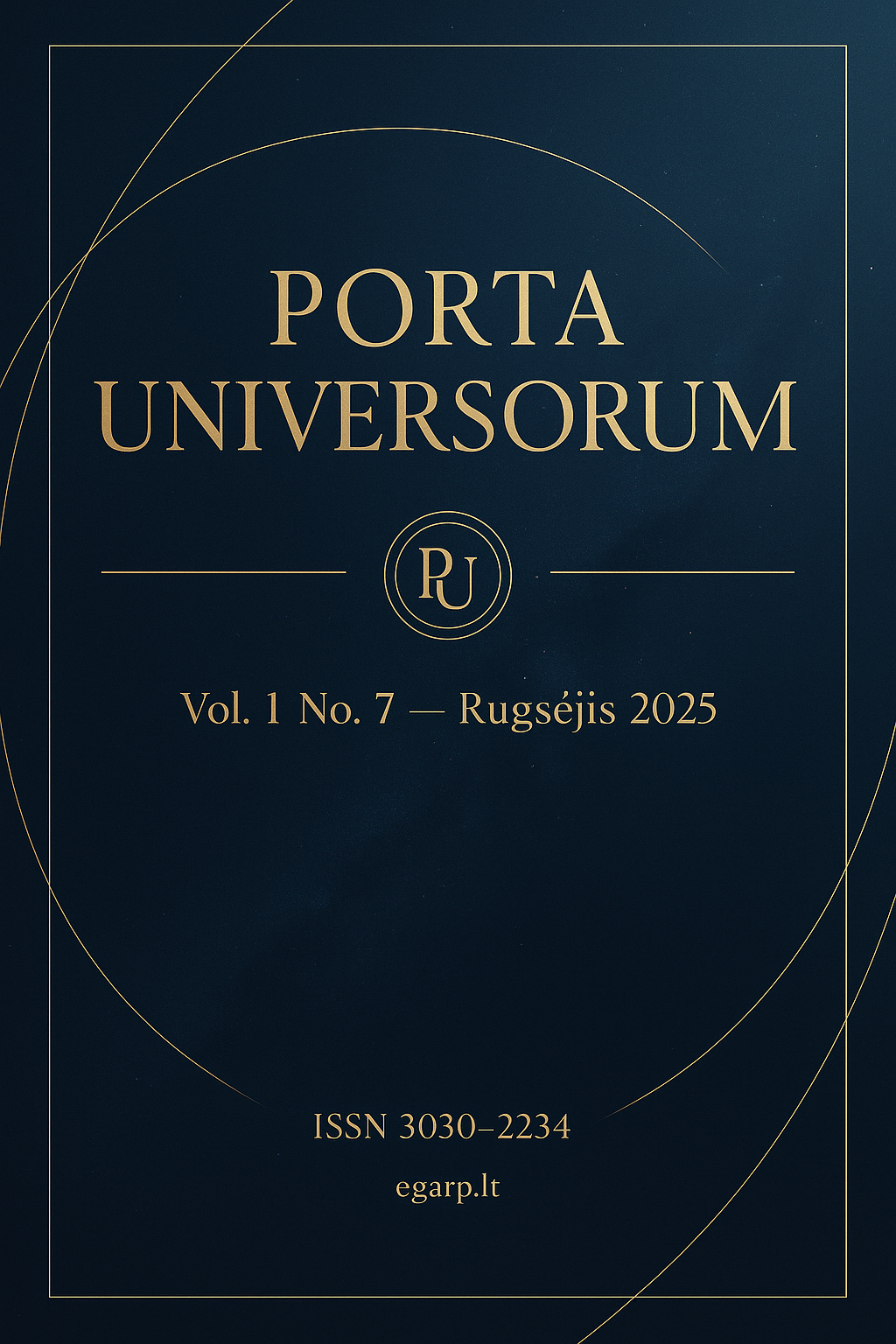Development Prospects of the Digital Economy in Azerbaijan
DOI:
https://doi.org/10.69760/portuni.0107006Keywords:
Digital Economy, ICT Development, E-Government, Digital Transformation, InnovationAbstract
The digital economy has become a cornerstone of modern economic growth and innovation, significantly shaping global markets and socio-economic structures. Azerbaijan, as a developing economy with growing digital infrastructure, has demonstrated substantial progress in adopting digital technologies across various sectors, including banking, telecommunications, and public administration. This article explores the development prospects of the digital economy in Azerbaijan, focusing on its current state, strategic initiatives, and future opportunities. By analyzing government policies, digital transformation programs, and the challenges related to cybersecurity, workforce readiness, and technological infrastructure, the paper highlights the key drivers that can accelerate digital growth. The topic is a very topical one. The study also examines international experiences to provide insights into how Azerbaijan can strengthen its position in the global digital ecosystem..
References
Aliyev, I. (2021). E-government development in Azerbaijan: Achievements and future prospects. Baku: Center for Digital Transformation, p-34.
ENISA. (2023). Cybersecurity in the EU and neighboring countries. Retrieved from https://www.enisa.europa.eu
International Telecommunication Union (ITU). (2022). ICT development index: Country profile Azerbaijan. Geneva: ITU, p 20-22.
Ministry of Transport, Communications and High Technologies of Azerbaijan. (2020). National Strategy for the Development of the Information Society 2014–2020, p 45
OECD. (2022). Going Digital in the Eastern Partnership Countries. Paris: OECD Publishing, p 125
PwC. (2022). The rise of the digital economy in emerging markets. Retrieved from https://www.pwc.com
Schumpeter, J. (1934). The theory of economic development. Harvard University Press, p 132
Tapscott, D. (1995). The digital economy: Promise and peril in the age of networked intelligence. McGraw-Hill, p 64
United Nations (UN). (2021). Sustainable Development Goals and digital transformation. New York: United Nations, p 81
UNECE. (2021). Silk Road connectivity and digital trade opportunities. Geneva: UNECE, p 102
World Bank. (2023). Azerbaijan digital economy assessment. Washington, DC: World Bank.
Ozturk, A., Behbudov, G., Abishov, S., & Bayramova, V. (2024). DIFFERENT VIEWS ON THE HURUF MOVEMENT. Norwegian Journal of development of the International Science No, 146, 53.
Memmedov, S., & Öztürk, A. (2025). Historical Development of Islam and Human Rights. Porta Universorum, 1(2), 42-46. https://doi.org/10.69760/portuni.010205
Garibli, I., & Ozturk, A. (2024). The main features of the consideration of civil cases in the courts of appeal of the Republic of Azerbaijan. BBC, 4(05), 26.
Karimli, N., & Ozturk , A. (2025). Risks And Advantages of Decriminalization: Balance Aspect in Criminal Law. Acta Globalis Humanitatis Et Linguarum, 2(3), 4-8. https://doi.org/10.69760/aghel.0250020001
Abbasov, E., Garibli, I., & Ozturk, A. (2025). Conduct of Civil Proceedings in Higher Courts. Porta Universorum, 1(3), 254-261. https://doi.org/10.69760/portuni.010321
Ozturk, A., Behbudov, G., Huseynov, T., & Ismayilov, N. (2024). THE PLACE AND ROLE OF THE HURUFISM MOVEMENT IN GLOBAL IDEAS. BBC, 22.
Öztürk, A. (2024). Problems with the Right to Legitimacy. Acta Globalis Humanitatis Et Linguarum, 1(1), 180-186. https://doi.org/10.69760/aghel.010240767
Öztürk, A., & Garibli, I. (2025). The Characteristics of Monarchy as a Form of Government. Acta Globalis Humanitatis Et Linguarum, 2(2), 117-125. https://doi.org/10.69760/aghel.025002101
Downloads
Published
Issue
Section
License
Copyright (c) 2025 Porta Universorum

This work is licensed under a Creative Commons Attribution-NonCommercial 4.0 International License.
License Terms
All articles published in Porta Universorum are licensed under the Creative Commons Attribution–NonCommercial 4.0 International License (CC BY-NC 4.0). This license permits:
-
Sharing (copying and redistributing the material in any medium or format),
-
Adapting (remixing, transforming, and building upon the material),
-
for non-commercial purposes only,
-
with proper attribution to the original author(s) and source.
Commercial use of the material is not permitted without prior written permission from the publisher.




